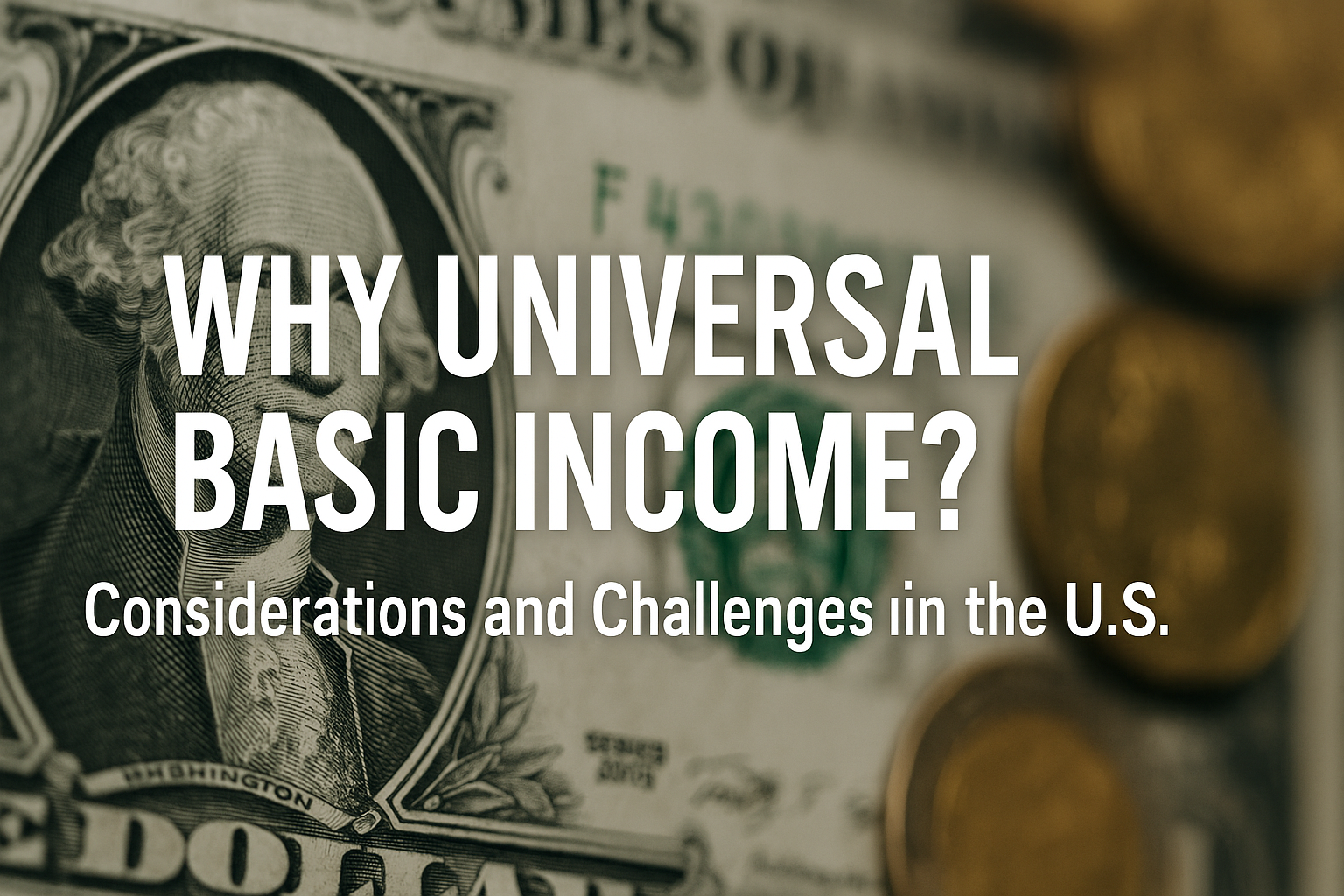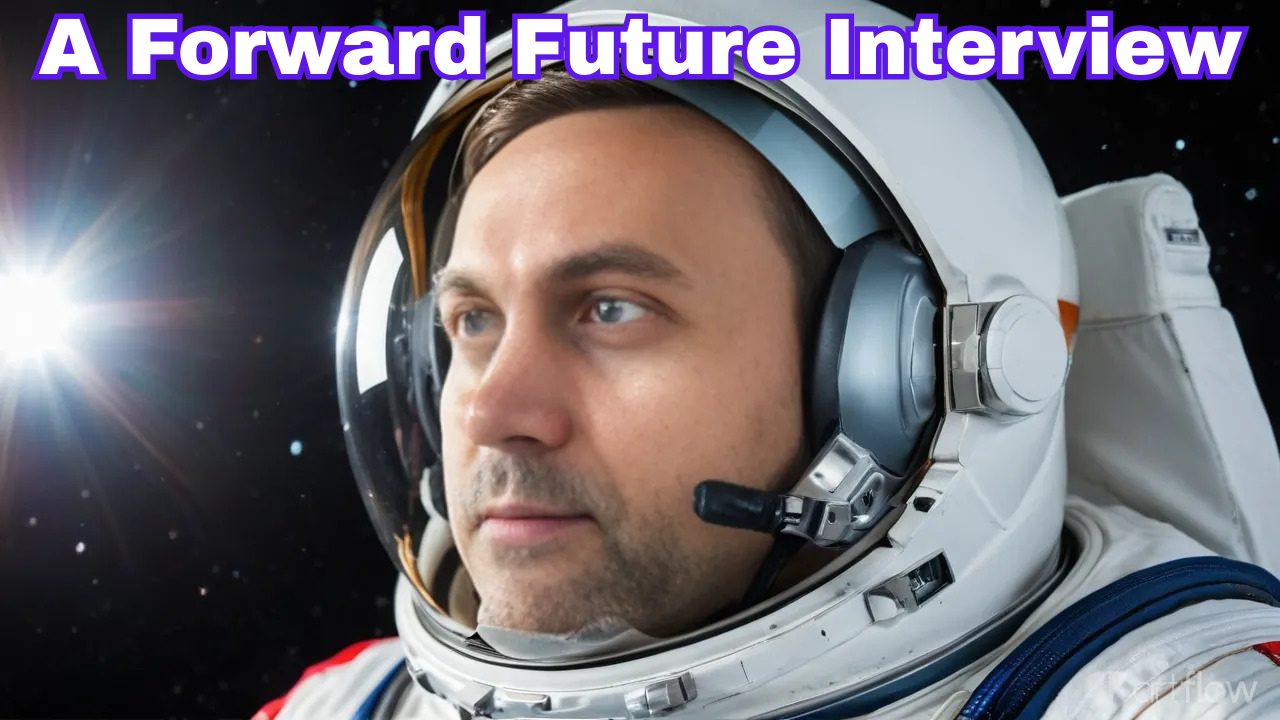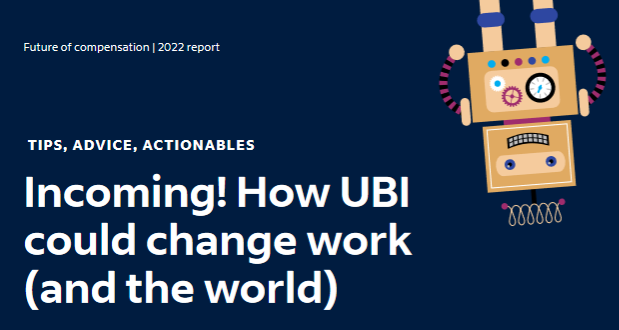What the Media Isn’t Telling You: Why Universal Basic Income Is the Answer to Poverty, Insecurity, and Inequality

A Newsweek reporter recently asked me — with a sense of urgency mind you — to provide expert answers on UBI for a story. I answered all their questions in detail by deadline. They never replied. Since then, they’ve published multiple UBI pieces without using a single word. I’m publishing the entire exchange here so you can see the insights they left on the cutting room floor.
Q: What core problems are UBI and GBI programs trying to solve – in the US context? What contemporary issues have given rise to its increasing adoption/popularity?
The core problems UBI directly seeks to solve are the three pathways it directly impacts: poverty, insecurity, and inequality. Poverty is ultimately a lack of money, and as Dr. King said when he advocated for UBI, “The simplest approach will prove to be the most effective — the solution to poverty is to abolish it directly by a now widely discussed measure: the guaranteed income.” But someone not in poverty can still live a very stressful paycheck-to-paycheck existence. A job can be lost at any time. It may not pay enough, even with multiple jobs. We’re all one disaster away from poverty. UBI recognizes that prevention is as much a part of the answer as treatment. Targeted assistance programs only help after the fact, and the tests they make people go through result in people failing those tests or not taking those tests due to constraints or stigma. Most targeted assistance programs tend to exclude the majority of those they’re intended to help. They also effectively punish those they help for increasing their incomes. If a floor exists below which no one can ever fall, that’s real security. Finally, even without poverty and with real security, inequality can still exist as its own problem that causes many other problems.
Excessive inequality undermines population health. It shortens life expectancy and increases infant and maternal mortality. It corrodes social cohesion by eroding interpersonal trust and civic engagement. It amplifies violent crime, especially homicide. It fuels mental illness and inflates domestic violence and child abuse. And perhaps most dangerously of all, it heightens political instability and conflict risk. Because UBI directly reduces inequality, especially when combined with progressive taxes like wealth taxes, all of these other problems can to some degree be relieved.
A society with no poverty and far less insecurity and inequality is a higher functioning society able to focus on problems and challenges far beyond the problems of day-to-day survival, like for example, how to maintain and grow a democracy instead of losing it to authoritarianism, and how to steward our planetary ecosystem better.
What has given rise to the discussion and testing of UBI this century is a slew of factors, but deep down I think it’s a growing sense that what we’re doing isn’t working and that things need to change. The Great Financial Crisis of 2008 opened wounds that never closed. The 1% were treated far differently than the 99% and inequality has only grown since. For many areas of the US, the Great Recession still exists for them. Then the pandemic happened, and now AI is happening, and climate change has been happening this whole time. The existing safety net is not designed for the world we live in today, and the income distribution system called jobs is not designed for the world we live in today either.
Because of all this, and because the UBI pilots keep showing success after success, especially in saturation site tests where entire communities get it, it seems likely that popular support for UBI will only continue to increase over time.
Q: What are the primary benefits of UBI/GBI – and how does this compare to existing welfare programs? (would it ideally replace these?)
I covered a lot of this already, but again, the main issues with traditional welfare programs are their conditions and means-testing which UBI explicitly doesn’t do. TANF provides cash to poor families. Coverage varies from state to state but the nationwide average is about 20%, meaning four out of five families the program is intended to reach don’t get it. In some states it can be 98 out of 100 families in poverty not getting it. That level of exclusion is criminal. SSI as another example is a disability program with a 50% clawback rate and a $2,000 asset limit. Most applicants for SSI are denied. Most of those denied who fight that denial have to wait many months and even multiple years to prove they should get it. Then those who finally get it can lose it by ever having more than $2,000 in their bank account.
UBI doesn’t do any of that. Everyone gets it. Period. It’s a floor upon which all income can be earned without worrying about the loss of one’s UBI. With UBI, every job leaves you better off financially. With existing welfare, a job can result in your being worse off. That’s a real problem.
In regards to if UBI should replace welfare, I think it depends on the program. TANF is a prime example of a program that should be replaced by UBI. SSI is an example of a program that should be reformed and be additional to UBI because those with disabilities will always have an uphill climb compared to the rest of us. Healthcare should never be considered welfare, so Medicaid and Medicare and ACA subsidies should be additional to UBI. Each existing program should be evaluated as making sense to replace or keep in some form as additional to UBI, depending on the amount of UBI and if the UBI has a child component or is paired with a child allowance.
Q: What’s your view on targeted vs. universal income programs (e.g., child allowances or GBI for low-income groups)?
Targeting is an inferior approach to universal programs outside of those like disability assistance.The enhanced CTC in 2021 was better than the existing CTC, but a universal child benefit combined with tax reform would have been better. All phaseouts where a benefit shrinks as income increases are effectively taxing those in the phaseout range. If someone gets $900 a month with a 50% phaseout, a $900 a month paycheck means $450 less benefit. That’s the exact same thing as not phasing it out and instead taxing their paycheck at a 50% rate. No one pays higher marginal tax rates in the US than the poorest who are receiving benefits. Their marginal tax rates can approach and even exceed 100% when combined across multiple programs with multiple phaseouts.
It’s also always important to remember that paperwork of any kind reduces coverage. Republicans just expanded work requirements for SNAP and Medicaid. We already know what’s going to happen as a result. There will be no increase in employment and instead fewer people will benefit from those programs. Universality recognizes this and does the opposite.
We should stop insisting on testing to see who deserves what. We should provide universally and use taxes as the admin-light test after-the-fact. When it comes to UBI, and you don’t want those over $100k getting it, then just make sure those earning $100k pay more in new taxes than the amount of UBI. There’s no need to even send any actual money. Those with $100k in income can see UBI as a new tax credit instead of the standard deduction.
Q: What do you make of the argument that such programs would prove inflationary and require raising taxes – i.e. the fiscal feasibility concerns?
The question of UBI and inflation is a complex one that requires nuance in a world that seems to have lost all nuance. The true answer is it all depends. What is the amount of UBI? $2000/mo is more inflationary than $500/mo. What is being replaced? A $500/mo UBI that replaces SNAP and the standard deduction is extremely unlikely to lead to inflation compared to being fully additional to them. What taxes are involved? $1 trillion in UBI spending that’s matched with $1 trillion in taxes is going to be less inflationary than the same amount of UBI via deficit spending. The kind of taxes also matters. Are we doing a land value tax that increases housing supply or are we taxing highly inelastic goods (meaning that people will ignore price)? What is the economic capacity of the economy to meet expressed demand with supply? For goods and services where supply constraints are exceeded, prices could go up, at least until supply is increased. How competitive are markets for various goods and services? A company with no competition, or multiple companies that effectively collude on prices, can raise prices, whereas a company that faces real competition will lose market share with a price increase. So stuff like antitrust enforcement is part of this equation. Automation is also part of it. As machines do more and more work, this can be deflationary, so UBI is less inflationary in a rapidly automating environment. There are other factors too like interest rates, amount of private debt, and reduced spending on the downstream effects of poverty and stress.
I also think people would be less worried about UBI and inflation if they realized that a $1300/mo UBI doesn’t mean everyone’s after-tax income goes up by that much. Everyone gets the same UBI but everyone does not pay the same amount of taxes for it. If you get $15k a year in UBI and your taxes go up $15k too, your disposable income goes up $0 which also means it cost the government $0. That person is not going to buy more of anything, thus that person will have no impact on prices just as their UBI will have no cost to the state. Yes, the fact that buying power can increase for the bottom 60% in a way that looks like a negative income tax can result in inflationary pressure, but it’s far less than if all 100% saw an income boost after taxes.
Q: Of the studies/pilot programs you are aware of – what surprising outcomes emerged – and were there any notable drawbacks?
My own personal definition of most surprising has changed over the years as I’ve read more and more studies. At first, back in 2013, I was most surprised to see such significant decreases in emergency hospitalization rates (9% in Dauphin) and in overall crime (43% in Namibia). Increases in employment were also surprising to me at first, but no longer. Not that it always happens or should happen, but that it can happen, especially in saturation site pilots where the money is universal and thus businesses have more customers and more need to hire to meet increased demand. I was also surprised at the huge impact on entrepreneurship (4x in Namibia and 3x in India). More recently, I was surprised by the results out of Finland that showed significant increases in trust.
As for drawbacks, I see them as eye-of-the-beholder. What someone else sees as a drawback, I may not, and vice versa. For example, domestic abuse often drops significantly, both partner abuse and child abuse. An abuser may see that as a drawback, but I don’t. Another example is high interest lending. In some experiments, the loudest complainers are moneylenders who can no longer find people willing to take out loans with 500% interest rates. Oh no, I’m so sad for them.
Q: Can results from small pilot programs be scaled up to predict national-level outcomes?
Some can and some probably shouldn’t. It depends on the result and the design of the pilot. We can draw much stronger conclusions I think from saturation site pilots than small pilots that provide money to 100 people spread out over an entire city or state, but even those pilots can tell us something about individual human behavior. There are some results that are very strong. With as close to 100% certainly as someone who cares about the scientific method can muster, I think we can count on better maternal nutrition leading to babies born with healthier birth weights. But other results I wouldn’t put that level of certainty into. I do think we’ll see better health, less crime, less partner and child abuse, less obesity, more entrepreneurship, more sustainable small businesses, less drug abuse, less debt, and more savings, all to some degree.
I also think that the concern that so many people will choose to work less to a worrying degree as a result of UBI is simply unwarranted by the mountain of data, especially if the UBI amount is sub-poverty level and taxes serve to phase-out the income with a small marginal tax rate, but others would disagree with me and say we can’t know what any real UBI impacts would be based on anything that wasn’t permanent and nationwide.
The enhanced CTC in 2021 was essentially a massive 6-month UBI pilot of about $450/mo per family. It reduced poverty by 40% and had all kinds of other positive effects, and it contributed virtually 0% to inflation, but yeah, it was only 6 months despite reaching about 40 million households. Meanwhile, we have other programs like the Alaska dividend that’s been operating for over 40 years, providing money universally on a permanent basis, and it too has had all kinds of positive effects, but sure, it’s small, once a year, and just Alaska.
What’s curious to me though is why we’re holding UBI to such a high bar. Did we do lots of local pilots of Social Security first before rolling that out? No. We had a problem with seniors living in poverty and we decided to dramatically reduce that, so we did. Lots of countries provide money without conditions or means-testing to kids and to seniors. But for some reason, it’s really challenging to do the same for working-age adults without disabilities or kids. Why? The simple and frustrating answer is the combination of lack of trust and a fear of having less leverage over them.
Q: What hurdles – legislative as well as cultural and economic – would wider adoption of GBI or UBI programs encounter in the U.S.?
UBI is a change to the status quo. It is a redistribution of power. Once everyone can refuse to work and still eat, employers will need to pay more for certain jobs. Some new people will run for office and more people will get civically engaged in the act of democracy. Unions will be empowered with a permanent strike fund. The automation of certain jobs will make more economic sense than ever, potentially hurting some unions despite the enhanced strike power. People who make their money off of the existence of poverty will have a hard time. Owners of prisons and prison stocks may be unhappy. More people finally gaining access to the court system may make a lot of rich and powerful people unhappy too.
There are all sorts of ways UBI alters the status quo. Things will be shaken up and a new equilibrium will be found, but in the meantime, those currently with the power who will see tens of millions of others gain more power relative to them could put a lot of resources into convincing people they were better off without UBI.
Oregon attempted a statewide UBI recently and the voters themselves said no. The big corporations there did a great job of buying that result by mass fearmongering what would happen if they were taxed more. That’s the kind of thing I can imagine seeing a lot more of. There are people who support UBI who voted no on UBI there, because it just wasn't what they considered an ideal version. Big money is really good at getting voters to convince themselves to vote against their own best interests.
UBI is a fight to be won, and it won’t be won easily. Those with the power have never been known to willingly hold less of it. But I do have faith in people to eventually realize UBI is more than just money, it’s more power to the People, and to then engage in the level of civic mobilization that won women’s suffrage and civil rights.
We’re in the Second Gilded Age and we need to start acting like it to get out of it and beyond it. Perhaps our biggest hurdle is what led to it besides continual tax cuts, which is the role of money in politics.
If you support my UBI work, please share this post and click the subscribe button. Also consider making a monthly pledge in support of my work.

Special thanks to my monthly supporters on Patreon: Gisele Huff, Haroon Mokhtarzada, Steven Grimm, Bob Weishaar, Judith Bliss, Lowell Aronoff, Jessica Chew, Katie Moussouris, David Ruark,Tricia Garrett, A.W.R., Daryl Smith, Larry Cohen, John Steinberger, Philip Rosedale, Liya Brook, Frederick Weber, Laurel gillespie, Dylan Hirsch-Shell, Tom Cooper, Robert Collins, Joanna Zarach, Mgmguy, Albert Wenger, Andrew Yang, Peter T Knight, Michael Finney, David Ihnen, Steve Roth, Miki Phagan, Walter Schaerer, Elizabeth Corker, Albert Daniel Brockman, Natalie Foster, Joe Ballou, Arjun ,' @Justin_Dart , Felix Ling, S, Jocelyn Hockings, Mark Donovan, Jason Clark, Chuck Cordes, Mark Broadgate, Leslie Kausch, Braden Ferrin , Juro Antal, centuryfalcon64, Deanna McHugh, Stephen Castro-Starkey, and all my other patrons for their support.
UBI Guide Newsletter
Join the newsletter to receive the latest updates in your inbox.


